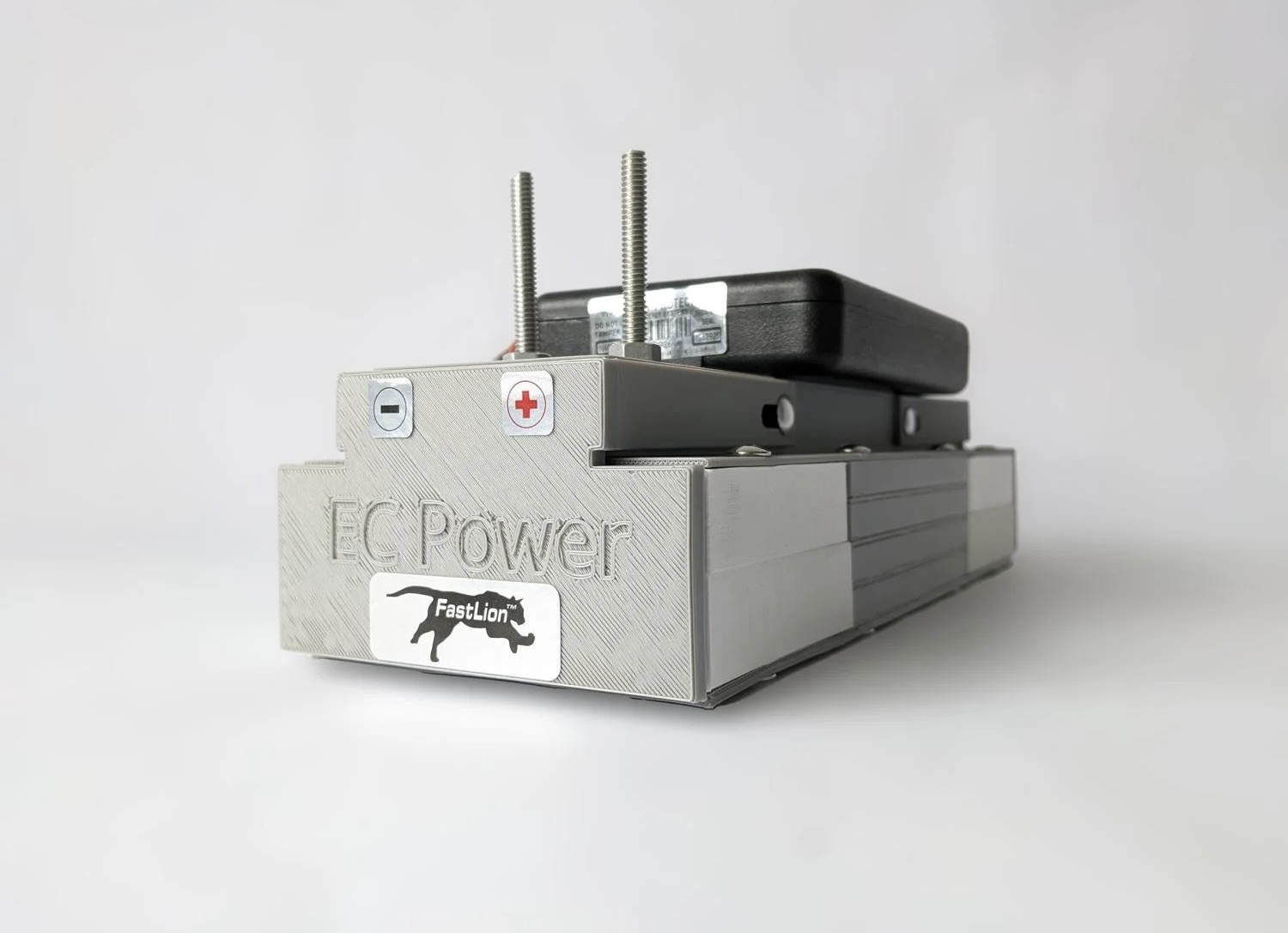Recent advancements in electric vehicle battery design have allowed a standard EV battery to charge in just 10 minutes. The record-breaking combination of a shorter charge time and more energy acquired for a longer travel range was announced on the 12th of October in the journal Nature.
 This 10-minute fast-charging battery was developed for electric cars, with the black box on the top containing a battery management system to control the module. Image Credit: EC Power.
This 10-minute fast-charging battery was developed for electric cars, with the black box on the top containing a battery management system to control the module. Image Credit: EC Power.
"The need for smaller, faster-charging batteries is greater than ever. There are simply not enough batteries and critical raw materials, especially those produced domestically, to meet anticipated demand."
Chao-Yang Wang, Study Lead Author and William E. Diefenderfer Professor, Mechanical Engineering, Pennsylvania State University
In August, California’s Air Resources Board approved a comprehensive plan to limit and eventually prohibit the sale of gasoline-powered cars in the state. The internal combustion engine will be effectively phased out of the United States’ major auto market by 2035.
If new car buyers are going to be directed toward battery-powered electric vehicles (EVs), they will need to overcome two major drawbacks: they are too slow to recharge and too big to be effective and economical. Some EVs will need a whole day to recharge, depending on the battery, as opposed to just a few minutes at the gas station.
"Our fast-charging technology works for most energy-dense batteries and will open a new possibility to downsize electric vehicle batteries from 150 to 50 kWh without causing drivers to feel range anxiety. The smaller, faster-charging batteries will dramatically cut down battery cost and usage of critical raw materials such as cobalt, graphite and lithium, enabling mass adoption of affordable electric cars."
Chao-Yang Wang, Study Lead Author and William E. Diefenderfer Professor, Mechanical Engineering, Pennsylvania State University
Wang’s lab partnered with EC Power, a State College-based startup to devise the technology.
Wang outlined the technology’s reliance on internal thermal modulation, an active method of temperature control that demands the battery to operate at its peak efficiency. Batteries perform best when they are hot but not too hot.
Keeping batteries at the ideal temperature has proven to be a significant challenge for battery engineers. Historically, external, bulky heating and cooling systems have been used to control battery temperature, which responds slowly and wastes a lot of energy, according to Wang.
Wang and his colleagues opted to control the temperature from within the battery. The investigators created a unique battery structure that includes an ultrathin nickel foil as the fourth component in addition to the anode, electrolyte, and cathode.
The nickel foil acts as a stimulus, self-regulating the battery’s temperature and reactivity, allowing for 10-minute fast charging on virtually any EV battery.
The authors state, “True fast-charging batteries would have immediate impact. Since there are not enough raw minerals for every internal combustion engine car to be replaced by a 150 kWh-equipped EV, fast charging is imperative for EVs to go mainstream.”
Wang added that the study’s collaborator, EC Power, is aiming to manufacture and commercialize the fast-charging battery for an affordable and sustainable future of vehicle electrification.
Teng Liu, Xiao-Guang Yang, Shanhai Ge and Yongjun Leng of Penn State and Nathaniel Stanley, Eric Rountree and Brian McCarthy of EC Power co-authored the study.
The research was funded by the US Department of Energy, the US Department of Defense, the US Air Force, and the William E. Diefenderfer Endowment.
